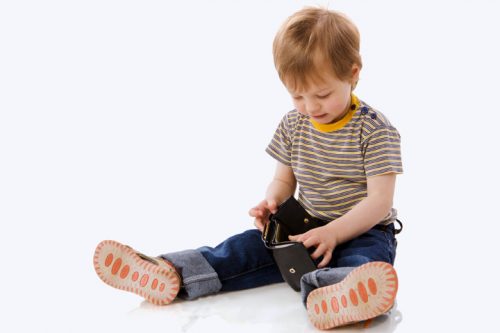
What do parents need to do when they caught their children stealing from their purse or using their credit card? It’s normal to get disappointed and angry about the situation; however, the distrust that comes along with it is the one that’s going to destroy the bond between parent and child.
When sticky little fingers find their way into the pockets of unsuspecting adults and objects go mysteriously missing, it is easy to think that you are raising a small thief inside your house. How can you possibly handle and resolve this issue?
Understand The Problem

While it could mean a lot of things to parents, stealing is a term and an act that your children might be unaware of.Taking someone’s property within the confines of the house can be perceived by the children as a “what’s mine is yours” kind of deal. However, if stealing goes beyond the four walls of the house, it entails a huge problem not only for the child but the parents as well. But this does not mean that your child will turn out to be a delinquent.
For preschoolers, anything within their reach is considered as theirs; equating possessions as ownership. In their minds, whatever is right in front of them can be taken. So, when a child takes a piece of candy from the store, he or she will not consider that as stealing unless parents call out that act as wrongdoing. “Children under ten years old do not yet have the levels of moral judgment to understand the underlying reasons for rules and laws, so they try to circumvent them.” explains Michael Thompson, Ph.D. While some children can cease the deed, some are finding it hard to curb the impulse since they consider the action as something that would satisfy gratification.
Dealing With The Deed
As children mature, they will develop a sense of unrighteousness with regards to stealing. The concept of property rights and ownership becomes more explicit and more comprehensive. Though there might still be some inherent characteristics beneath the surface, parents must insist on ceasing the act for it may result in dire consequences once their children turn to adults. How can parents manage their children’s stealing before it goes out-of-hand?
1. Maintain Attachment
Children who are more attached to their parents develop a sense of sensitivity to their surroundings which it easier for them to grasp the concept of stealing and at the same time, respecting the property and rights of other people. Parents who practice attachment parenting enable a deeper and more meaningful connection with their kids; thereby making the discussion of stealing more comfortable for both parties.
2. Inspire Good Deeds
Teaching values to children can only be impactful if done by parents. Remember that whatever you do, your children would consider it as something that is morally acceptable since they look up to you as their primary teachers. Toddlers will have little to no understanding of the principle of ownership which is why it is vital that you reiterate that taking other people’s property is a bad thing. You can do this by showing examples from TV or children’s books. Also, it is imperative that you lead by example. Eventually, the child will be able to grasp the notion of ownership.
3. Immediately Correct The Mistake

Upon realization that the child has already taken something, parents would have to practice the art of negotiation. First, they must encourage their children to admit that they have willingly taken the item. Next, they have to emphasize that what they did is inadmissible and should not happen again. Lastly, correct the mistake by going back to the store where the item was taken from and let your child personally pay for it and apologize afterward. While all of this is occurring, you have to see your child through. “Make punishments for bad or poor behavior reasonable and think of them as a teaching opportunity.” says James A. Powell Psy.D.
4. Acknowledge Honesty
Unlearning stealing will take time,but eventually, your child will pull through. For every good intention, always praise your child’s honesty. For example, if your child brings a $20 bill to you and says that she found it somewhere, acknowledge the good deed, thank your child, and find a way to return the money to the owner or to the authorities. Inculcate in your child that what she did was amazing and she was able to save whoever lost the money the trouble of searching for it.
As a child grows, everything becomes a learning process. Stealing is just one of those things that your child has to grow out of. Do not hesitate to teach your children values at a young age; they will carry these values as they become older and pass it on to the next generation. Laura Markham Ph.D. reminds us that “Kids want to act right. If they don’t, it’s because something’s getting in their way and they need our coaching.”
